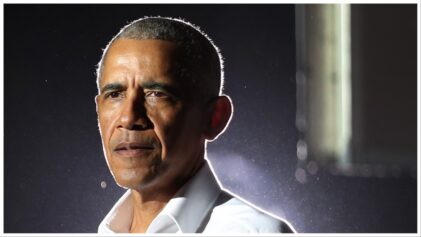Although U.S. intelligence has assessed “with varying degrees of confidence” that the Syrian government had used the chemical agent sarin against its citizens, President Obama is proceeding cautiously in committing action against Syria’s President Bashar al-Assad.
Obama’s circumspection stems from the lesson learned from the erroneous reports more than a decade ago that indicated that Iraq possessed weapons of mass destruction and led to the U.S. invasion of that nation.
The president is walking a fine line in Syria because, as he has said in the past and he repeated again at the White House yesterday, Assad’s use of chemical weapons against Syrians is “a game changer.”
But Obama clearly is reluctant to commit American troops to another volatile Arab country.
“Knowing that potentially chemical weapons have been used inside of Syria doesn’t tell us when they were used, how they were used,” he told reporters in the Oval Office, before he met with King Abdullah II of Jordan. “We have to act prudently. We have to make these assessments deliberately.”
“But I meant what I’d said,” he added, according to the New York Times. “To use potential weapons of mass destruction on civilian populations crosses another line with respect to international norms and international law. And that is going to be a game changer.”
Although the White House sent a letter to congressional leaders advising them that U.S. intelligence had assessed “with varying degrees of confidence” that the Syrian government had used sarin, the president said he was seeking further proof.
The White House said it was taking its lessons from the Iraq War fiasco, making sure it doesn’t make any moves based on incomplete or potentially inaccurate assessments of weapons of mass destruction.
White House Press Secretary Jay Carney said the administration would “look at the past for guidance when it comes to the need to be very serious about gathering all the facts, establishing chain of custody, linking evidence of the use of chemical weapons to specific incidents and actions taken by the regime.”
The White House also intensified its efforts to work with Arab leaders to increase aid to the Syrian opposition and develop a consensus on how to deal with the ongoing conflict.
According to the Times, in addition to King Abdullah, Obama has met in recent days with leaders from Qatar and the United Arab Emirates, as well as the Saudi foreign minister. Next month, he is scheduled to meet Prime Minister Recep Tayyip Erdogan of Turkey, which borders Syria and is among the countries most exposed to the threat of a chemical weapons attack.
“If their policy is premised on not going it alone, even in response to chemical weapons,” Brian Katulis, a Middle East expert at the Center for American Progress, told the Times, “you’re going to need a lot of people reading from the same song sheet.”
During Obama’s meeting with Abdullah, the focus was on coordinating more robust aid for the Syrian opposition, according to an administration official The U.S. pledged last weekend to double its non-lethal assistance and was working with regional allies to direct it to reliable opposition groups.
Prime Minister David Cameron of Britain yesterday echoed Obama’s assessment, saying that there was limited but growing evidence that chemical weapons had been used in Syria, probably by government forces. But the British are also leery, remembering the lessons of Iraq.
“There’s growing evidence that we have seen, too, of the use of chemical weapons, probably by the regime,” Cameron said.
“It is extremely serious; this is a war crime, and we should take it very seriously,” he added.
Still, Cameron repeated that Britain had no appetite to intervene militarily.
“I don’t want to see that, and I don’t think that is likely to happen,” he said. “But I think we can step up the pressure on the regime, work with our partners, work with the opposition in order to bring about the right outcome. But we need to go on gathering this evidence and also to send a very clear warning to the Syrian regime about these appalling actions.”
The United States has called on the United Nations to carry out a thorough investigation of the suspected use of chemical weapons by the Syrian government, but Syria has so far not allowed the inspectors into the country. Backed by its supporter Russia, Syria insists on limits to the scope of the investigation.
“As long as Damascus refuses to let the U.N. investigate all allegations, and as long as Russia provides the regime with political cover at the Security Council, it may be impossible for Washington to meet that standard,” Michael Eisenstadt, director of the military and security studies program at the Washington Institute for Near East Policy, said in a report.
Eisenstadt said if the world doesn’t respond, it could embolden Assad to use chemical weapons on a wider scale.


